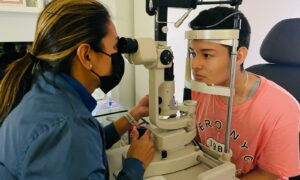February 1, 2021
By Dwight Akerman, OD, MBA, FAAO, FBCLA
During the fourth quarter of 2020, Jobson Optical Research polled nearly 300 eye care professionals from around the United States to learn more about their attitudes and behaviors regarding myopia management. The results are both encouraging and disappointing.
Seven in ten (70.1%) surveyed said their practices provide myopia management services, but three in ten (29.9%) said their practices do not offer myopia care for children. During the second quarter of 2019, Jobson Optical Research conducted a similar poll with U.S. ECPs. Back then, a year and a half earlier, six in ten (62.5%) ECPs surveyed said their practices provide myopia management services, but almost four in ten (37.5%) said their practices do not offer myopia care for children.
Myopia, considered a pandemic by many public health experts, has traditionally been treated with single vision eyeglasses, which do nothing to slow progression. Furthermore, myopia management interventions such as the CooperVision MiSight 1 day contact lens, validated through a randomized controlled trial (RCT), are often not prescribed early enough to deliver their optimum effect on a child’s ocular development. Unfortunately, eye care professionals and parents of myopic children still often take a wait-and-see approach to myopia management.
There is good reason to slow the progression of myopia. Once considered a simple refractive error with few, if any, long-term eye health consequences, myopia increases the risk of serious, sight-threatening complications later in life, including retinal detachment, myopia macular degeneration, and glaucoma.
I urge you to commit to the highest level of care and prescribe the most appropriate evidence-based treatments to children at risk of progressive myopia. Let’s get proactive about myopia management in 2021!
Best professional regards,

Dwight H. Akerman, OD, MBA, FAAO, FBCLA
Chief Medical Editor
dwight.akerman@gmail.com









